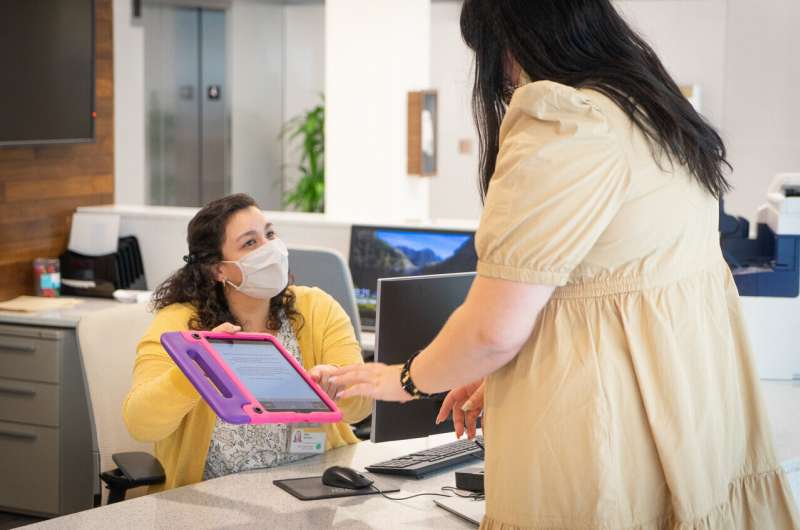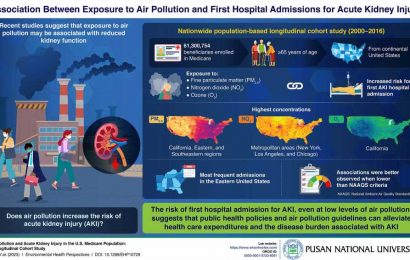
Have you ever felt uncomfortable when asked about depression or any other sensitive personal issue when checking in for a medical visit?
You’re not alone.
Doctors at Wake Forest School of Medicine wondered if patients might be more forthcoming with honest information by completing a self-administered questionnaire on a tablet computer instead of responding verbally to nursing staff.
Seems they were right.
In a recent study, the tablet screening detected twice as many people with depression, fall risk or intimate partner violence compared to usual in-person screening by nursing staff, according to the study’s principal investigator, David Miller, M.D., professor of internal medicine at Wake Forest School of Medicine. The study is published in the March 8 issue of JAMA Network Open.
“We think using an iPad provides more privacy for patients and gives us more accurate health information than when nurses verbally do the screening as part of the check-in process for clinic visits,” Miller said. “It also saves nursing staff time since they don’t have to ask the questions while checking a patient’s vitals and updating their medical information.”
For this non-randomized controlled trial, the screening questions for depression, fall risk and intimate partner violence that are asked at every primary care visit were programmed into the mPATH app, which was developed by Miller’s team in 2018 to assist patients with colorectal cancer screening.
Miller’s team evaluated data from six primary care practices (three family medicine and three internal medicine) to determine if more patients with depression, fall risk or intimate partner violence were identified in the two months after the practice started using the tablet as compared to the two months before, when nursing staff were asking the same screening questions verbally. All 23,026 patients included in the study were 18 years or older and were seen from June 2019 to February 2020.
Patients in the study’s participating practices were asked to complete the mPATH questionnaire while in the waiting room and then return the tablet to the reception desk. When nursing staff called the person in to check their vitals and place them in an exam room, a nurse simply clicked a button that automatically imported all the information to the patient’s electronic medical record.
If a patient screened positive for a fall risk, a real-time alert popped up on the patient’s electronic record, prompting the nursing staff to implement appropriate safety measures. If a patient screened positive for severe depression or having thoughts of self-harm, an automatic alert popped up in the health record so the doctor had that information before seeing the patient and could evaluate whether immediate clinical attention was needed.
The accuracy of in-person screening of primary care patients for depression, injurious falls or intimate partner violence is hampered by time pressures, staff discomfort and patients’ reluctance to disclose sensitive information, Miller said. Self-administered screening on a tablet device may lessen these factors and improve the detection of at-risk patients, he said.
“What is new about our study is that practices employed mPATH as part of their usual care, so we could see how tablet-based screening works in the real world,” Miller said. “A few prior studies examined tablet-based screening in the context of research studies, but what is seen in a research environment doesn’t always translate into medical practice.”
Limitations of the study include the single health system setting with a predominantly white population and its non-randomized design.
Source: Read Full Article


